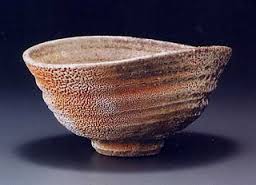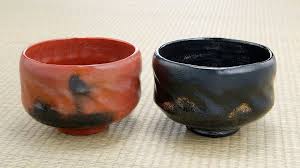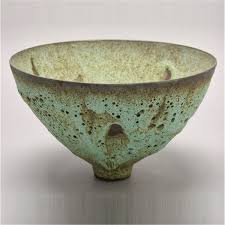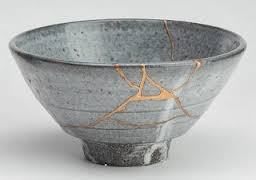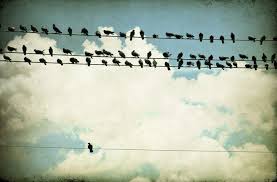What is Wabi-sabi?
Wabi-sabi is a Japanese aesthetic philosophy with roots in Zen Buddhism. As a concept is doesn’t translate well into English. Indeed, in the 1990’s Leonard Koren (author of “Wabi-Sabi: for Artists, Designers, Poets & Philosophers,” a seminal text on wabi-sabi for Westerners) tried unsuccessfully to pinpoint an exact definition that translated well into English. (Here is a discussion of definitions for wabi-sabi). Koren eventually developed his own definition, which is now widely used by English language authors in the West. Koren says, “Wabi sabi is the beauty of things imperfect, impermanent, and incomplete, the antithesis of our classical Western notion of beauty as something perfect, enduring, and monumental.”
A common visual example of wabi-sabi typically involves pottery bowls like these:
In wabi-sabi, the fact the bowls are irregularly shaped, with uneven glaze, cracks, and various imperfections is what makes them beautiful.
One of the difficulties in any discussion of wabi-sabi is the fact that it’s easy (for me and Westerners like me) to ‘thing-ify’ wabi-sabi. So instead of seeing wabi-sabi as an event or a habit of mind, instead we want to make it an innate property of objects. For example, we might see mass-produced distressed jeans and say “Those jeans have a wabi-sabi aesthetic” when in fact they do not (or at least, not necessarily). Wabi-sabi is in us, not in things or spaces.
Of his journey to understanding (his version) of wabi-sabi, Leonard Koren says:
“I was also aroused by the beauty of things odd, misshapen, and/or slightly awkward; what conventional thinking might consider “not in good taste” or “ugly”. . . I gravitated toward things that reduced the emotional distance between them and I; things that beckoned me to get closer, to touch, to relate with.”
I told you all that so I can tell you this . . .
Concepts at the heart of wabi-sabi (impermanence, ordinariness, incompletion) underly what I am trying to do here on FRD. I see a confluence between self-acceptance and self-love and the wabi-sabi that allows us to appreciate the beauty of the naturally imperfect (impermanent, ordinary, incomplete) world.

